When choosing new windows for your home, one aspect that is often overlooked is the thickness of the window frame. Whether you’re renovating a period property or installing modern aluminium windows in a contemporary space, frame thickness plays a crucial role in window performance.
It affects everything from energy efficiency and durability to aesthetics and compliance with building regulations. This guide will walk you through the key considerations when choosing the right window frame thickness for your residential property.
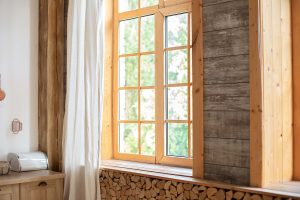
What Are the Different Window Frame Options?
Window frames come in various materials, each with standard thickness ranges that influence their performance. Some of the most common materials include:
uPVC
- uPVC windows are popular in the UK due to their affordability, low maintenance, and energy efficiency. The thickness of uPVC frames typically ranges from 60mm to 80mm. BSF Windows offers a selection of uPVC frames, with features like multi-chambered profiles for better thermal insulation, making them an ideal choice for homeowners looking to reduce their energy bills.
Aluminium
- Aluminium window frames are known for their sleek, slim profiles and strength. These frames are thinner compared to other materials, with thicknesses ranging from 70mm to 85mm. This slimline design allows for more glass and natural light while maintaining durability. BSF Windows provides premium aluminium windows, engineered with thermal breaks to improve energy efficiency.
Timber
- Timber frames are a traditional option that adds warmth and charm to period or traditional properties. These frames are generally thicker, ranging from 75mm to 95mm, due to the natural properties of wood. Timber windows at BSF are crafted with sustainable materials and provide superior insulation and durability, making them a perfect fit for those looking to maintain a classic aesthetic.
Each material has unique benefits in terms of energy efficiency, security, and style. When choosing window frames, it’s important to consider how the thickness of the frame will complement the overall look and function of your property.
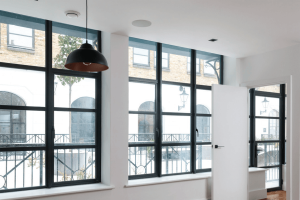
What Are the Benefits of Each Window Frame?
uPVC Windows
uPVC frames are known for their energy efficiency and cost-effectiveness. The thicker the uPVC frame, the better its insulation properties, helping to reduce energy bills and keep your home comfortable throughout the year. With a range of styles and finishes available at BSF Windows, you can choose frames that complement your home’s aesthetic while ensuring excellent performance.
Aluminium Frames
Aluminium window frames offer slim profiles that provide sleek, clean lines and modern appeal. Despite their thinness, aluminium windows are strong and durable, offering high levels of security and resistance to weathering. The thickness of aluminium frames can be tailored to suit your energy efficiency needs, with thermal breaks designed to prevent heat loss.
Timber Windows
Thicker timber frames not only provide exceptional insulation but also offer a timeless look for traditional properties. With natural insulating properties, timber windows can reduce energy consumption and help maintain a comfortable indoor environment. BSF Windows’ timber frames are designed for long-lasting performance, ensuring they remain a beautiful and functional part of your home for years to come.
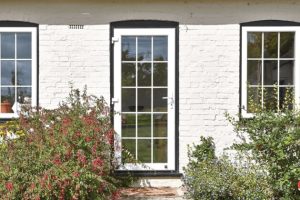
Which Frame Material is More Energy Efficient?
When considering window frame thickness and energy efficiency, it’s important to look at the material used. uPVC and timber frames generally provide the best thermal efficiency due to their insulating properties.
- uPVC frames: These often feature multi-chambered profiles, which trap air and create an effective barrier against heat loss. uPVC windows from BSF Windows are designed to meet the highest energy standards, reducing your home’s carbon footprint and energy bills.
- Aluminium frames: Although aluminium is a conductor, modern designs incorporate thermal breaks within the frame, improving their energy efficiency. BSF’s aluminium windows are engineered for optimal insulation, making them an excellent choice for contemporary properties.
- Timber frames: Wood is a natural insulator, making timber frames one of the most energy-efficient options available. At BSF Windows, our timber windows combine traditional craftsmanship with modern energy-saving features, ensuring your home remains warm in winter and cool in summer.
For homes in Surrey, Sussex, and the surrounding areas, where climate control is crucial, choosing a thicker frame with superior insulation properties can make a noticeable difference in both comfort and energy costs.

Are There Building Regulations for Certain Window Frames?
In the UK, window installations must comply with Building Regulations, particularly in terms of energy efficiency, safety, and ventilation. Frame thickness plays a part in meeting these standards, particularly when considering factors like window energy rating (WER) and thermal efficiency.
- Energy Efficiency: Building regulations require that all new windows meet a minimum energy efficiency standard. This includes specific U-values, which measure how well a window prevents heat from escaping. The thickness and material of the window frame will impact this rating. Thicker, insulated frames will typically offer better U-values, ensuring compliance with regulations.
- Safety: For certain installations, such as those in upper floors, thicker frames may be required to accommodate safety glazing or boosted locking systems. BSF Windows offers windows designed to meet or exceed safety standards, giving you peace of mind along with energy savings.
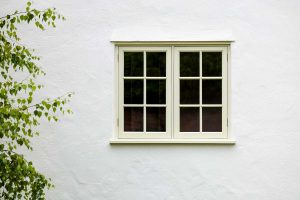
How to Choose the Right Thickness for Your Project
Choosing the right window frame thickness depends on several factors, including your property’s location, the style of your home, and your specific needs. For example:
- Weather: In areas prone to colder winters or hotter summers, thicker frames with better insulation will provide year-round comfort. Double or triple glazing paired with a thicker frame can offer superior thermal efficiency, reducing heat loss and lowering your energy bills.
- Aesthetic Appeal: If you’re renovating a traditional property, you might prefer timber frames, which tend to be thicker. For modern homes, aluminium frames offer a sleek look with their slimline design.
- Security and Durability: Thicker frames often mean stronger windows, particularly when it comes to materials like timber or aluminium. Whether you’re looking to improve the security of your home or ensure long-lasting durability, BSF Windows provides a range of options designed to meet your specific requirements.

Measuring Frame Thickness and Understanding Manufacturer Specifications
When comparing window frames, it’s important to understand the manufacturer’s specifications. The thickness of the frame will usually be listed in millimeters, and it’s worth measuring the existing frames in your home to ensure compatibility with new installations.
At BSF Windows, our experts can guide you through the process, helping you choose the right frame thickness for your property. Whether you’re opting for our uPVC, aluminium, or timber windows, we’ll ensure your new windows meet both your aesthetic and functional needs.
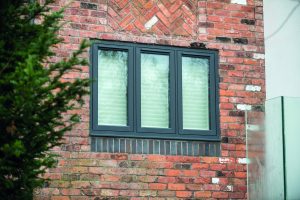
Choose BSF Windows for all Window Frames
Now that you have a better understanding of window frame thickness and its impact on energy efficiency, security, and aesthetics, it’s time to take the next step. Contact BSF Windows today to discuss your project, visit our showroom, or request a free, no-obligation quote. Our team of experts is here to help you choose the perfect window frame thickness for your home, ensuring you get the best performance and style.
Transform your home with high-quality, energy-efficient windows from BSF Windows. Visit us online or get in touch with our team for more information.
